Featured
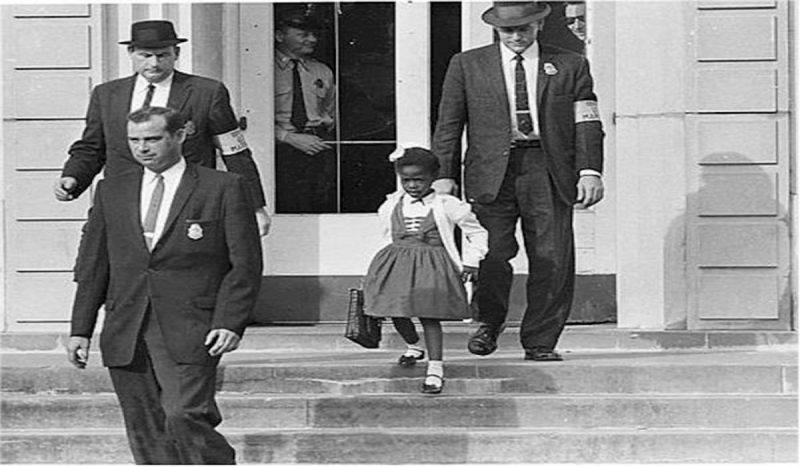 Once a symbol of desegregation, Ruby Bridges’ school now reflects another battle engulfing public education. By Connie L. Schaffer, Matha Graham Viator and Meg White / The Conversatio
Once a symbol of desegregation, Ruby Bridges’ school now reflects another battle engulfing public education. By Connie L. Schaffer, Matha Graham Viator and Meg White / The Conversatio
On Nov. 14, 1960, after a long summer and autumn of volleys between the Louisiana Legislature and the federal courts, Ruby Bridges, a 6-year-old Black girl, was allowed to enroll in an all-white school. Accompanied by federal marshals, Bridges entered William Frantz Public School – a small neighborhood school in New Orleans’ Upper Ninth Ward. If that building’s walls could talk, they certainly would tell the well-known story of its desegregation. But those same walls could tell another story, too. That story is about continued racism as well as efforts to dismantle and privatize public education in America over the past six decades. Read more
Political / Social
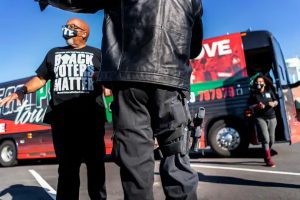 Black voters delivered Democrats the presidency. Now they are caught in the middle of its internal battle. By Eugene Scott / Wash Post
Black voters delivered Democrats the presidency. Now they are caught in the middle of its internal battle. By Eugene Scott / Wash Post
Because the Democratic Party didn’t benefit from the blue wave that many expected on Election Day, some lawmakers and party leaders are suggesting Democrats need to distance themselves from the messaging and, perhaps, ideas surrounding one of the most popular issues with the party’s base. That could mean disappointing one of the groups that can take credit for Joe Biden’s victory: Black voters. Read more
Related: Native American Voters Were Crucial To Joe Biden’s Victory. By Jennifer Bendery / HuffPost
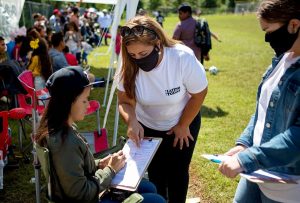 So-called “Latino vote” is 32 million Americans with diverse political opinions and national origins. By Lisa Garcia Bedolla / Salon
So-called “Latino vote” is 32 million Americans with diverse political opinions and national origins. By Lisa Garcia Bedolla / Salon
Pundits are expressing surprise that so many Latinos voted for Donald Trump. But pollsters who specialize in the Latino vote knew for months before the election that Latino support for Biden was soft, with many Latinos — especially in Florida — undecided. In Florida 57% of Latinos ultimately supported Biden, compared to roughly 70% nationwide. The 60.6 million Americans lumped together under the umbrella term “Latino” are a racially, ethnically and geographically diverse group, as my research on Latino identity shows. And they have equally diverse political opinions. Read more
Related: Trump shocked the world with his Latino support. Here’s how it happened. David Byler / Wash Post
 Trump’s racist appeals powered a White evangelical tsunami. By Dana Milbank / Wash Post
Trump’s racist appeals powered a White evangelical tsunami. By Dana Milbank / Wash Post
As partisans and analysts puzzle over the higher-than-expected turnout for President Trump (nearly 6 million fewer votes than for President-elect Joe Biden, but still high), they are poring over groups and subgroups: White, non-college-educated men. Suburban women. Young Black men. But much of the Trump 2020 phenomenon can be explained by a far simpler way of looking at the electorate: There are White evangelical Christians — and there is everybody else. Read more
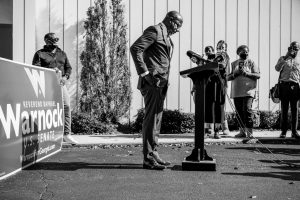 What Democrats Are Up Against in Georgia. By Joseph Crespino / NYT
What Democrats Are Up Against in Georgia. By Joseph Crespino / NYT
We are all Georgians now. Or at least that’s how it feels with the eyes of the nation focused on Georgia and its two U.S. Senate runoff elections on Jan. 5, which will determine party control of the Senate. Raphael Warnock, a Democrat, will face off against the Republican Senator Kelly Loeffler, and Jon Ossoff, a Democrat, will attempt to unseat the Republican Senator David Perdue. The Senate contenders face not just Republicans but also the state’s political history, which shows that change doesn’t come easy. Read more
Related: Latino voters in Georgia get attention in high-stakes Senate races. By Suzanne Gamboa / NBC News
 Record Number Of Women Of Color Are Headed To Congress. By Sarah Ruiz-Grossman / HuffPost
Record Number Of Women Of Color Are Headed To Congress. By Sarah Ruiz-Grossman / HuffPost
At least 50 women of color (including 46 Democrats) will serve in the next Congress, breaking the previous record of 48 set in the last elections, according to a report Thursday by the Center for American Women and Politics at Rutgers University. The winners included a record number of women of color heading to the U.S. House — 47 of whom already won seats, compared to the previous record of 44 in 2018. Another three women of color remain in races that have not yet been called. Read more
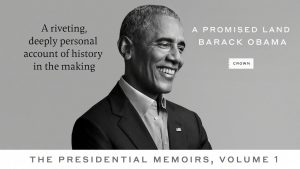 In ‘A Promised Land,’ Barack Obama Thinks — and Thinks Some More — Over His First Term. By Jennifer Szalai / NYT
In ‘A Promised Land,’ Barack Obama Thinks — and Thinks Some More — Over His First Term. By Jennifer Szalai / NYT
The most audacious thing about Barack Obama’s new memoir, “A Promised Land,” is the beaming portrait on its cover: There he is, the 44th president, looking so serenely confident that it’s as if the book weren’t arriving on the heels of a bitter election, amid a cratering economy and a raging pandemic. The ebullient image also stands at odds with the narrative inside — 700 pages that are as deliberative, measured and methodical as the author himself. Read more
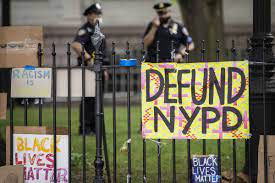 Police reform measures were a winner this election. By Rachel Ramirez / Vox
Police reform measures were a winner this election. By Rachel Ramirez / Vox
Despite being a contentious issue across party lines, voters last week in cities in six states overwhelmingly approved 18 of these ballot measures, including creating and improving police oversight boards, changing police department staffing and funding, and requiring public access to police body and dashboard camera recordings. While most of these measures are a step toward reform, almost none are radical in terms of reimagining policing. Many are standards already implemented in other cities — and a bare minimum for police accountability, activists say. Read more
Related: How Black Oaklanders Finally Expelled the School Police. Edwin Ross / Mother Jones
 California may have foreshadowed the end of affirmative action. By Charles Lane / Wash Post
California may have foreshadowed the end of affirmative action. By Charles Lane / Wash Post
The future happens here first,” California’s Gov. Gavin Newsom (D) likes to say. Affirmative action supporters must hope that is not always true. On Nov. 3, California voters delivered a huge blow to the cause of promoting diversity through race-conscious university admissions, government employment and contracting. By a 57-to-43 percent vote, they rejected Proposition 16, a referendum that would have repealed a ban on affirmative action that Golden State voters approved in 1996. Traditional conservative White opposition to affirmative action is a big part of Prop 16’s failure but cannot explain all of it. Read more
 Biden’s COVID-19 Response Must Start With Most Vulnerable : Shots – Health News: By Abraar Karan, Ranu Dhillon, David Walton and Ingrid Katz / NPR
Biden’s COVID-19 Response Must Start With Most Vulnerable : Shots – Health News: By Abraar Karan, Ranu Dhillon, David Walton and Ingrid Katz / NPR
According to recent reports on NPR, in The New York Times and elsewhere, Black and Latinx people in the U.S. have contracted the coronavirus at rates significantly higher than white people per capita, are much more likely to become sick enough to require hospitalization and are more likely to die from that infection than their white counterparts. These disparities exist across state lines, in both urban and rural areas and across all age groups. The focus on equity, at its foundation, is a critical examination of communities — how we gain their trust and how we understand their struggles within systems that are often designed to harm them. These are lessons that were crucial in the past two Ebola outbreaks, which two of us were directly involved with. Read more
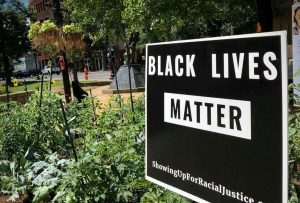 As winter approaches, America’s racist produce distribution system makes food insecurity worse. By Ashlie D. Stevens / Salon
As winter approaches, America’s racist produce distribution system makes food insecurity worse. By Ashlie D. Stevens / Salon
All across the country, community garden leaders are having to adapt their plots for the winter or, in some cases, simply latch the garden gates behind them until early spring. But in food insecure neighborhoods, those decisions can have a community-wide impact on produce access, a sad reality that is particularly evident during the colder months. “It becomes a real scarcity over winter,” said Cordia Pugh, the founder of Hermitage Community Gardens in Chicago. “A real scarcity as we race through the winter, waiting for spring to come when we can get back in the gardens to get fresh produce.” Pugh spoke with Salon earlier this year about her community gardens, which are located in Englewood, where, according to municipal data, nearly 95% of the neighborhood’s residents are non-Hispanic Black, and nearly 80% of that population lives with low or volatile access to fresh produce. Read more
 A Black man will lead VMI for the first time in history, amid racism investigation. By Ian Shapira / Wash Post
A Black man will lead VMI for the first time in history, amid racism investigation. By Ian Shapira / Wash Post
Under fierce attack over racism in its ranks, the Virginia Military Institute has appointed a Black man to lead the school for the first time in its 181-year history, VMI officials announced Friday. Retired Army Maj. Gen. Cedric T. Wins, who graduated from VMI in 1985, will serve as interim superintendent until the Board of Visitors appoints a permanent chief to oversee the country’s oldest state-funded military college. He takes over from the school’s longtime superintendent, retired Gen. J.H. Binford Peay III, who resigned after Black cadets described startling bigotry in a Washington Post report. Read more
 ‘Stand your ground’ in Florida could be expanded under DeSantis’ ‘anti-mob’ proposal. By Erik Ortiz / NBC News
‘Stand your ground’ in Florida could be expanded under DeSantis’ ‘anti-mob’ proposal. By Erik Ortiz / NBC News
The move is part of DeSantis’ “anti-mob” draft legislation, which would target people accused of illegal acts during riots and looting. DeSantis, a Republican, presented his aggressive agenda in response to the months of large-scale racial justice protests across the country, which at times flared into violent clashes. “His proposal will only fuel racial unrest and violence, not dampen it,” said state Sen. Randolph Bracy, a Democrat whose district includes parts of Orange County. “DeSantis is treating the law as a playbook for his next election, which is reckless and irresponsible.” Read more
History / Culture
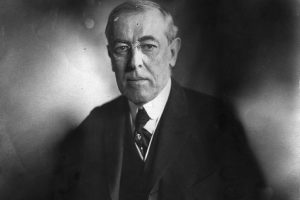 Segregation policies in federal government in early 20th century harmed Blacks for decades. By Guo XU and Abhay Aneja / The Conversation
Segregation policies in federal government in early 20th century harmed Blacks for decades. By Guo XU and Abhay Aneja / The Conversation
Economic disparities in earnings, health and wealth between Black and white Americans are staggeringly large. Historical government practices and institutions – such as segregated schools, redlined neighborhoods and discrimination in medical care – have contributed to these wide disparities. While these causes may not always be overt, they can have lasting negative effects on the prosperity of minority communities. Soon after his inauguration in 1913, President Woodrow Wilson ushered in one of the most far-reaching discrimination policies of that century. Wilson discreetly authorized his Cabinet secretaries to implement a policy of racial segregation across the federal bureaucracy. Read more
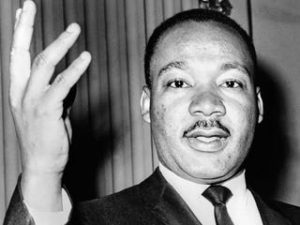 How the FBI Tried to Drive Martin Luther King Jr. to Suicide. Melissa Leon / The Daily Beast
How the FBI Tried to Drive Martin Luther King Jr. to Suicide. Melissa Leon / The Daily Beast
Director Sam Pollard’s upcoming documentary MLK/FBI, now playing via the DOC NYC festival and planned for a January release from IFC Films, devotes itself to examining that history through a wide lens. It supplies what some of the sensationalized initial responses to the FBI reports neglected, namely a justifiable skepticism of the FBI’s surveillance and recording methods and an emphasis on the racist fears behind Hoover’s mission to destroy King at the height of the civil rights movement. Read more
Related: Before ‘I Have a Dream,’ Martin Luther King Almost Died. This Man Saved Him. By Michael Wilson / NYT
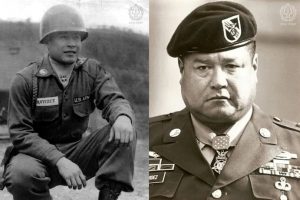 Fort Hood is named for a Confederate traitor. Is it time for ‘Fort Benavidez’? By Alex Horton / Wash Post
Fort Hood is named for a Confederate traitor. Is it time for ‘Fort Benavidez’? By Alex Horton / Wash Post
Benavidez, a stout pack of dynamite who earned the call sign Tango Mike Mike — That Mean Mexican — had only a knife as a weapon and a bottle of Tabasco. He produced a medical bag. “I’m in,” Benavidez said, according to the book “Legend,” which recounts the incident. The next few hours of May 2, 1968, would make Benavidez an instant icon of the Vietnam War after fighting nearly to the death on the fringes of a Cambodian jungle. That battle has also thrust Benavidez’s legacy into a reckoning over race in the United States, which has included calls to remove the names of Confederate officers from Army installations. Benavidez has become the most prominent candidate in a campaign to rename the Army’s largest post, Fort Hood, in Central Texas, after someone from the state. Read more
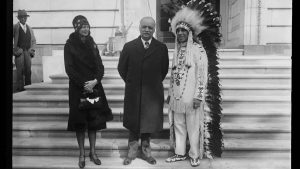 Harris will be the first female, Black and Asian VP. But not the first VP of color. By Gillian Brockell / Wash Post
Harris will be the first female, Black and Asian VP. But not the first VP of color. By Gillian Brockell / Wash Post
Vice President-elect Kamala D. Harris is a trailblazer in many ways. She is the first female vice president. The first Black vice president. The first South Asian vice president. And, perhaps, the first vice president to sport Chuck Taylors. But, as some have mistakenly claimed, she is not the first multiracial vice president or the first one of color. That distinction belongs to Charles Curtis, who served as vice president to Herbert Hoover from 1929 to 1933. Curtis’s mother was a Native American who belonged to the Kaw Nation, and he was raised on a reservation by his maternal grandparents, where he spoke the Indigenous language and lived in a tepee. Read more
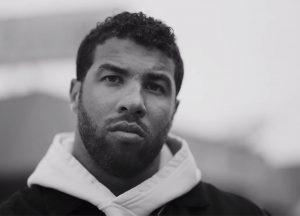 ‘You love Black culture, but do you love me?’: Black athletes and artists in new ad. By Ree Hines / Today
‘You love Black culture, but do you love me?’: Black athletes and artists in new ad. By Ree Hines / Today
A new ad campaign from Apple’s Beats by Dre kicked off Thursday with a short video that accomplishes many things at once. It honors Black culture, celebrates Black joy, showcases Black stars and confronts an age-old hypocrisy, too. Watch here
Sports
 Miami Marlins name Kim Ng 1st female general manager in Major League Baseball history. By Kelly McCarthy / ABC News
Miami Marlins name Kim Ng 1st female general manager in Major League Baseball history. By Kelly McCarthy / ABC News
The Miami Marlins made a historic change to the lineup in their front office. Kim Ng was named general manager of the Miami Marlins, the organization announced Friday, becoming the first female and first Asian American general manager in the sport’s history. “I entered Major League Baseball as an intern and, after decades of determination, it is the honor of my career to lead the Miami Marlins as their next General Manager,” Ng, a longtime baseball executive who has been senior vice president for baseball operations for the MLB since 2011, said in a statement. Read more
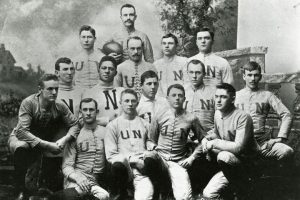 George Flippin, Nebraska’s first Black football player: a hero who white people turned into a pariah. By Paul Putz / Slate
George Flippin, Nebraska’s first Black football player: a hero who white people turned into a pariah. By Paul Putz / Slate
At the very beginning of Nebraska’s football history, the player carrying the banner for the state was a Black man. While there were a handful of other Black athletes at predominantly white colleges at the time—George Jewett at Michigan, William Henry Lewis at Harvard—Flippin was the only one building a football tradition from the ground up. As the Cornhuskers honor George Flippin in 2020, it’s the full scope of his experience that must be remembered. We should celebrate that Flippin integrated the football team and helped launch the program. We should also dwell on the fact that he was rejected by the predominantly white school and state he represented—as were generations of Black athletes after him, including some today who have said that their full humanity is not always valued. Read more
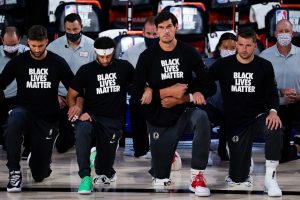 How Trump Lost Sports as a Political Strategy. By Jere Longman / NYT
How Trump Lost Sports as a Political Strategy. By Jere Longman / NYT
For most of his presidency, Donald J. Trump reliably called out athletes who he felt were disrespecting the national anthem, the flag and him. But the killing of George Floyd in police custody in Minneapolis on May 25 set off waves of protest and galvanized athletes in an election year to more forcefully repudiate Trump’s demand that players stand during “The Star-Spangled Banner” before games. Athletes were also inspired to spur voter registration and turnout as stadiums and arenas became polling places. Read more
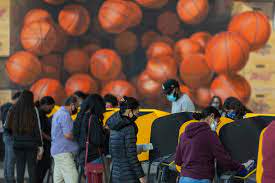 Election vote count gets boost from sports arenas running up the score. By Josh Peters, Tom Schad and Jeff Zillgitt / USA Today
Election vote count gets boost from sports arenas running up the score. By Josh Peters, Tom Schad and Jeff Zillgitt / USA Today
Shabazz Williams walked out of Staples Center on Election Day wearing a Lakers jersey and a team-branded face mask, his civic duty complete. Williams, 38, knew that he could have voted at a polling site closer to his home in Sherman Oaks, which is about a 15-minute drive from downtown Los Angeles. But where’s the fun in that? Instead, the Lakers fan donned a jersey and drove to the team’s home arena, where he said it took him no more than 15 minutes to fill out his ballot. Read more
Visit our home page for more articles, book/podcast and video favorites. And at the top of this page register your email to receive notification of new editions of Race Inquiry Digest. Click here for earlier Digests.
Use the buttons below to share the Digest in an email, or post to your Facebook, Linkedin or Twitter accounts.